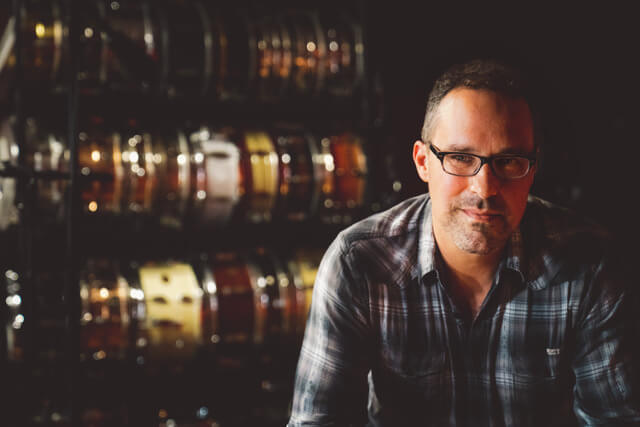No, not that Dylan,…but nevertheless, a cautionary tale
Americans who aren’t scientists appear to believe that they can decide for themselves whether the world is experiencing climate change (you know who you are). But, regardless of degree, there’s no argument that it’s fire season in the west, and good ol’ hurricane season in the east and south. So, while the “truth”, it seems, has become fungible, when you go down to your recording studio, and water is lapping over the mixing console, there’s no denying that your business is officially on hiatus, or worse.

pictured: Dylan Wissing
It’s that word “business” that’s at the crux of the matter. Too many pro artists and recording professionals who keep gear where they sleep think that it’s covered against damage or loss by their homeowner’s or renter’s policies. Too often, it’s not. Also too often, artists don’t have any policies at all. A professional musician’s gear is considered business equipment no matter where it resides. And it’s one thing to lose a couch and carpet, but when a ‘cane comes and gets your gear, Ringo you are SOOL.
This story was inspired by a chance meeting at the recent NAMM Show with session drummer extraordinaire Dylan Wissing. Based in Hoboken, NJ, Wissing has recorded for artists including John Legend, Drake, Kanye West, Jay-Z and Eminem, but he’s perhaps best known as the drummer on Alicia Keys’ GRAMMY award-winning hit, “Girl on Fire.” His drum loop and sample packs for companies like Native Instruments, Sounds, Cymatics, Soundtrap and Patchbanks feature a wide range of styles — ‘50s R&B and ‘60s pop, funky ‘70s breakbeats and disco, up through modern pop and hip-hop. He also teaches the art of recording and session drumming at his website, Creating the Sound (www.creatingthesound.com).
One of the great stories he related over a late afternoon cup ‘o joe in Anaheim was the time ten years ago when Hurricane Irene came for his studio. We’ve shared a version of it below, which was previously re-told on the Disc Makers blog written by our old buddy Andre Calihanna. Hey Andre! (He loves us!) Shout out to Andre! Anyway, it goes a little something like this:
“I had a recording studio in Hoboken, NJ. They built the town in a swamp and every once in a while, it reverts back to its former self. My studio was in an old factory building and I knew the hurricane was coming so we prepped the place. I had gotten everything three feet off the ground and put a bunch of instruments: snare drums, toms, cymbals in these water-tight, molded plastic drum cases and stacked them in the center of the room. I then stacked stuff on top of that.
About three feet of water came in, and the plastic cases became little boats sitting in this water. I couldn’t get in there for three or four days, and by the time I did, the walls were turning black. The building had been an old wallpaper factory and was pretty toxic on a good day. I bought a bunch of expensive rubber boots, some friends came over and we tried to salvage what we could, but there was so much stuff that was totally destroyed. All these beautiful, vintage drums. I pretty much had a 20-year collection destroyed or that needed a major overhaul. I’ve been a full-time musician since 1990, and I’ve been collecting stuff since I was in high school. It was depressing.
But the saving grace was that we had music instrument insurance through MusicPro. I had actually learned my lesson back in the ’90s. I toured with the band Johnny Socko (based in Indiana) for thirteen years. Back in 1993, we were playing the east coast for the first time. We had all our equipment in a trailer, and all our cash from the tour was in our van. We went to D.C. for some sightseeing, and when we got back, the van was gone. It was found the next day, but they had cleaned everything out and we had no insurance. Of course, after that, somebody’s father said, ‘You idiots, why didn’t you have insurance? What’s more important than securing the tools of your trade?’ It was a catastrophic theft. I had to deplete my college fund to replace the gear I lost.
By the time of the Irene disaster, we were covered. A check came from Music Pro pretty soon after — I think it was settled within 45 days. So that gave me the funds to build an official pro studio now called Triple Colossal in better location. I was able to quickly get back up and running, but it was a pretty stressful period.
So, with anyone I work with in any way shape or form — if their stuff is not insured — I basically smack them across the forehead. The starting rate for Music Pro is only $175. People don’t know. Because you can be as prepared as possible and still have a trailer open up on the highway. You can prep for a hurricane, raise your gear off the ground, and you can still be faced with a catastrophe. Or someone could just say, ‘Oh look, a trailer full of gear. I think I’ll take it.’”
So, whether you live in, and/or tour, areas that flood, freeze, quake or burn, or your stuff is subject to breakage or walking off with a light fingered ne’er do well, take somebody’s father’s advice and don’t be an idiot. Secure the tools of your trade with MusicPro Insurance (at 1-800-MusicPro, or musicproinsurance.com).

About the Author
Paul Irwin writes for In Tune Monthly, ASCAP Experience Digital, The Gibson Amplifier and other music media.
**main photo by Josh Freeman (dropkickjoshphoto)
